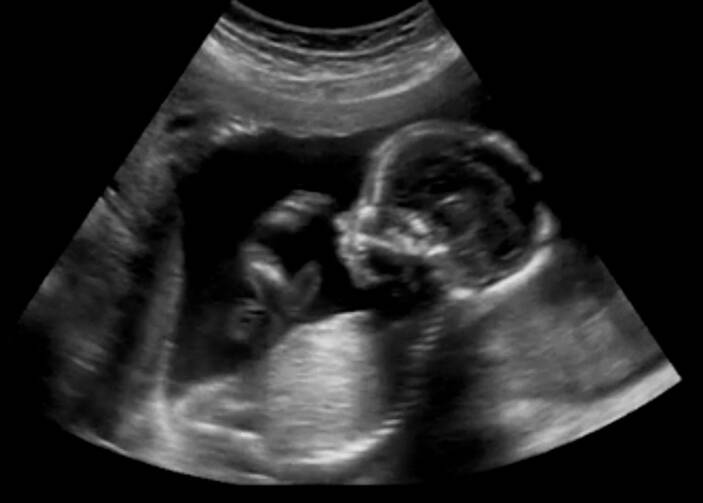Prenatal Imprecision
For decades, expecting parents have had access to prenatal tests to check for genetic disorders like Down syndrome and Edwards syndrome. But until recently they have had to choose between imprecise screenings and invasive diagnostics that, while definitive, carry a small risk of miscarriage. Today, mothers are increasingly opting for a new generation of prenatal screening tests that promise, perhaps misleadingly, near-perfect accuracy with none of the risk.
Cell-free fetal DNA testing has been on the market since 2011, but some experts warn that unregulated screening companies are overselling the precision of their results; and doctors lacking genetic expertise may struggle to communicate the limitations of the tests to patients. The accuracy of the tests ranges from just 40 percent to 90 percent, which is why a traditional diagnostic test is strongly recommended to confirm any positive screening result. Some women who learn that their child is at high risk for a chromosomal condition are having abortions without first having a confirmation test. In at least three cases, the babies were later found to have been completely healthy.
The proliferation of prenatal screening for an ever-growing list of identifiable genetic abnormalities presents an ethical challenge to health care providers. It is alarming that as many as 90 percent of parents who receive a diagnosis of Down syndrome choose to terminate the pregnancy. Parents who receive the heart-wrenching news that their child may live for just a few painful days, or who face the challenge of raising a child with special needs, deserve the full support and accompaniment of the entire community not only in their choice to bring this fragile life into the world but also in the joys and sorrows that will surely follow.
Off Balance in Ukraine
If the recent peace summit in Belarus does not lead to an effective cease-fire, the Obama administration will be under even more pressure to do “something” to stand up to a barely disguised Russian campaign of aggression that has violated Ukraine’s sovereignty. The trouble is that any course of action is deeply perilous. Standing down while Russian nationalists seize chunks of eastern Ukraine may only encourage Vladimir Putin’s reckless campaign. But a too-aggressive effort to shore up Ukrainian defenses may heighten the confrontation between two nuclear-armed powers caught in a stare-down on the outskirts of Europe.
There will be much talk of Munich and appeasement if the Obama administration seeks to finesse a way around this dangerous confrontation. But not every attempt to avoid a potentially catastrophic military engagement represents appeasement. Sometimes it is merely the wisest course of action. The Obama administration must not allow itself to be goaded into an injudicious decision. It has to methodically build the foundation for a strategy against Putin that will last longer than the next U.S. presidential election cycle. It could be that the best course of action is to allow Putin to follow his worst instincts. His regime may eventually choke on its costly appetite for separatist enclaves, but that will not happen quickly.
In the meantime, Ukraine is entitled to defend itself. If the cease-fire does not hold, a multilateral, limited campaign to restore Ukraine’s defensive capacity seems warranted. Putin is a fan of jujitsu, a martial art that exploits an opponent’s balance. Could a dramatic gesture shift the balance of confrontation in Ukraine’s Donbass region? A decision to green-light military aid should be accompanied by good counsel. The United States could offer to host direct negotiations between Ukrainian officials and separatists, modeled after the Dayton negotiations that brought an end to conflict in the former Yugoslavia.
Rainless in Rio
Think of Brazil, and lush rainforests, pristine beaches and happy scenes of Carnival likely come to mind. But thanks to climate change, this South American country of over 200 million people may be in for a drastic ecological and economic makeover.
Brazil has had over 40 severe droughts since 1583, but the latest one is likely to prove the most devastating. This new picture is not a pretty one. Lack of rain (in what is supposed to be the rainy season) is adversely affecting everything from the power grid to coffee bean production to grocery prices. Over four million people in 93 cities are living with water rationing. With power being rationed, agriculture suffering, businesses closing, employees being laid off and prices for basic necessities rising, the pain of the drought is widely felt. Inadequate infrastructure, the result of both government mismanagement and private sector corruption, has created further waste and made things even worse.
Temperatures are also rising on the streets. The poor, especially in Rio, are marching with empty buckets to illustrate what the drought has done to their lives. Climate change and drought affect another vital resource: the Amazon rainforests. The exploitation of that natural wonder will have far-reaching consequences, not only for Brazil but for the rest of the planet as well. It is a cautionary tale for all, and Pope Francis’ forthcoming environmental encyclical could not be timelier.








